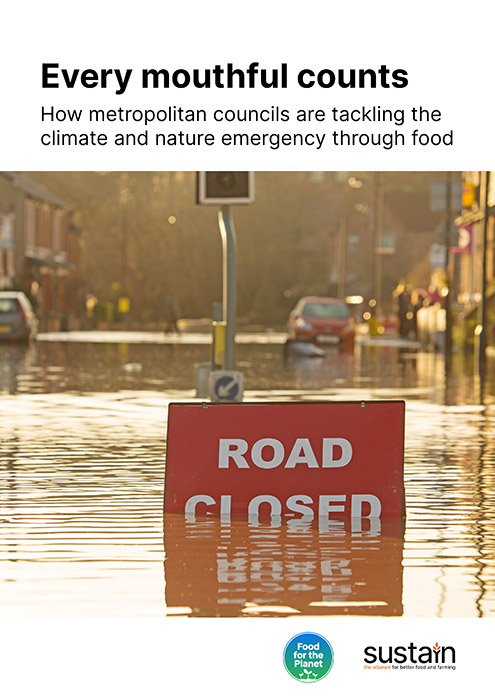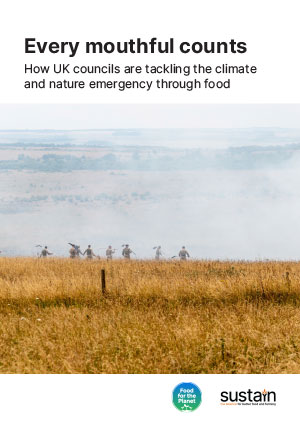This report assessed councils on their performance on climate and nature-related food issues. We split our assessment across four themes: Governance, Farming and Food Growing, Food Waste and Procurement. This is based on Food for the Planet’s Every Mouthful Counts toolkit. Through interviewing top-performing councils, we also tracked the many co-benefits that can be unlocked by taking action on food.
This research was conducted by analysing all published climate action plans, biodiversity plans, and food strategies for Northern Irish, Scottish and Welsh local Authorities, London boroughs, and English unitary authorities and county councils. In the second phase of research, we analysed all published climate action plans, biodiversity plans, local plans and food strategies for metropolitan councils. . Climate action plans were found using climateemergency.uk and biodiversity plans, whilst local plans and food strategies were found by searching the internet.
All councils were given the opportunity to provide additional information once the first round of primary data collection reached a close. This allowed us to access information that may have been missing from the plans that our researchers analysed.
Scoring was restricted to actions that are committed to in published policies that have not expired. This allows for fair scoring across all councils, but also ensures the councils have a level of accountability beyond funding time-limited projects. We are aware that councils are carrying out and supporting a great deal of work which may not be reflected in policy, and that several councils have policies currently being drafted which we were not able to include. Additional points were awarded where commitments were measurable and timebound.
The top performing councils were invited to provide more information about their work as part of a case study. These case studies were mostly carried out as a thirty minute to one hour interview with relevant council officers, councillors or members from the local food partnership. A standardised questionnaire was used across the interviews, but a semi-structured interview approach was taken in order to explore specific points with the interviewees. Where time for a meeting could not be found, councils were invited to provide a written submission.
Case study
Signed up to the Every mouthful counts toolkit










